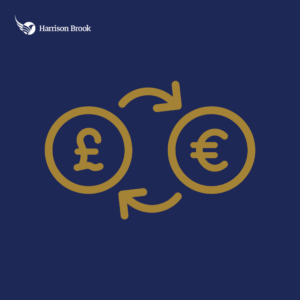
Muslim Expats – Pension & Investment Funds
Muslim expats leaving the UK with accumulated wealth or UK pensions have options to invest into Shariah/Islamic compliant funds.
Islam is the second largest religion in the world with around 2 billion adherents making up for around 24% of the world’s population. Almost 31% of Muslims are from South Asia closely followed by the Middle East and Europe. Predictions show that by 2050 Islam will be the largest population therefore increasing the need for Shariah/Islamic funds for Muslim expats.
Shariah Compliant Investments
The absence of interest (RIBA) in the investment, Islam strictly prohibits interest (RIBA). The lender cannot receive it and the borrower cannot pay it.
Making a return on capital is not prohibited if the provider is willing to share the risk. Capital is borrowed and returned as a profit opposed to interest (RIBA).
Area’s of Non-Compliant Funds
- Alcohol – Brewers or Distillers
- Banks – Banking institutions involved in interest
- Gambling
- Pornographic Manufactures
- Tobacco – Manufactures of tobacco products
- Ancillary Activity – Any business not involved in the above but receives more than 5% from its income
- Any other forms whose activity the Shariah board feel prejudicial
Sharia/Islamic Compliant Funds
With Harrison Brook, Muslim expats can have the opportunity to invest in Shariah/Islamic compliant funds via a range of choices from pensions, platform accounts and savings.
A Shariah compliant fund is an investment vehicle fund structured in accordance to Shariah rules. Shariah funds can be managed as mutual funds, ETFs or hedge funds. The fund must be overseen by a Sharia Advisory Board of renowned scholars that will advise the fund managers on Islamic Sharia rulings on various issues of investment and finance.
-
Mutual Funds
Mutual funds are an investment vehicle made up of a pool of funds collected from many investors. This is used for investing in securities such as stocks, bonds, money market instruments and similar assets. Mutual funds are operated by money managers, who invest the fund’s capital and attempt to produce capital gains and income for the fund’s investors.
-
ETFs
An ETF, or exchange-traded fund, is a marketable security that tracks an index, a commodity, bonds, or a basket of assets like an index fund. Unlike mutual funds, an ETF trades like a common stock on a stock exchange. An ETF is a type of fund that owns the underlying assets (shares of stock, bonds, oil futures, gold bars, foreign currency, etc.) and divides ownership of those assets into shares.
-
Hedge Funds
Like mutual funds, hedge funds are pools of underlying securities. Hedge funds typically use long-short strategies, that invest in some balance of long positions (meaning buying stocks) and short positions (meaning selling stocks with borrowed money, then buying them back later when their price has, ideally, fallen).
For further advice for Muslim expats and the solutions we have available please contact Harrison Brook today!
The information contained herein is for informational purposes only which is subject to change and should not be relied upon. You should seek advice from a professional adviser before embarking on any financial planning activity.


